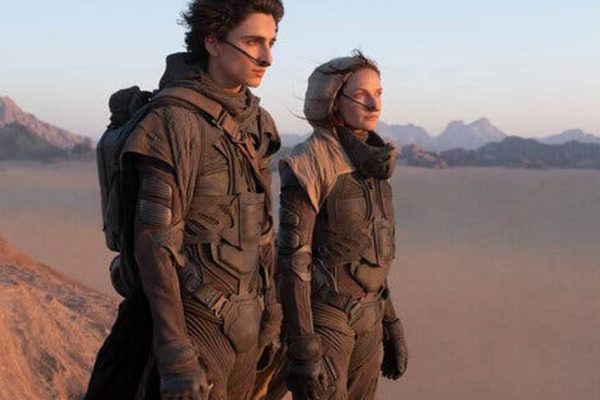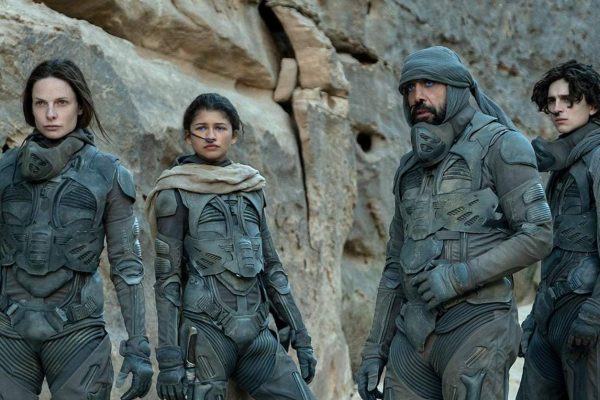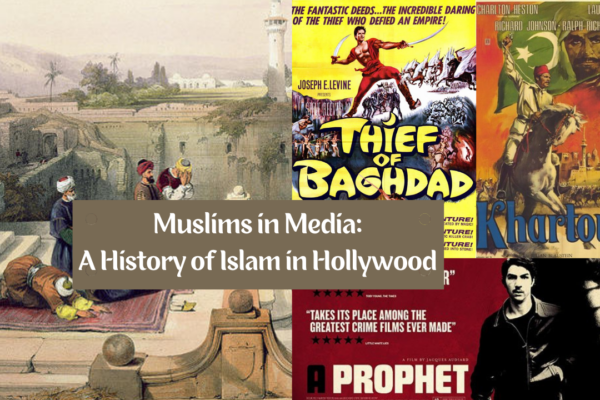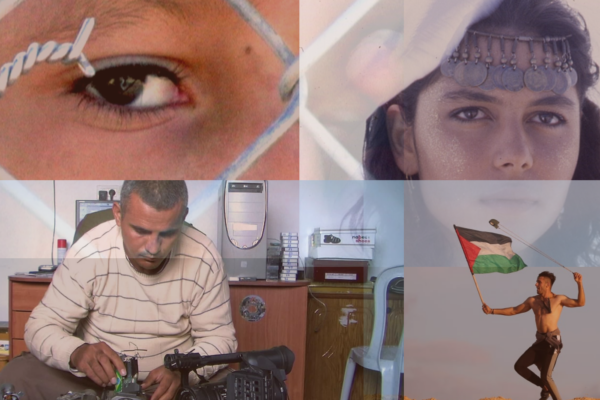The author of the Dune fictional world, Frank Herbert, heavily borrowed from the Arabic language and Islamic eschatology to create the various important plot and characters that underpin the storyline of Dune.
The author of the Dune fictional world, Frank Herbert, heavily borrowed from the Arabic language and Islamic eschatology to create the various important plot and characters that underpin the storyline of Dune.
Rarely, a film is so well made and leaves such an impression that the viewer wants to read the source novel and watch other film adaptations of the same story. Dune (2021) is one of those rare films, and it has been a while since we have witnessed a film on such an epic scale.
From the beautiful and mesmerising cinematography by Greig Fraser to the masterful soundtrack composed by Hanz Zimmer, who turned down the work on Christopher Nolan’s Tenet to produce the soundtrack, Dune is a powerful experience directed by Denis Villeneuve.
There are several key themes in Dune that stand out firmly and grip the viewers’ attention. The concept of messianism (the Islamic saviour of humanity), the close resemblance of the Arrakis inhabitants – the Fremen – to the Bedouin Arabs, the problems and destruction that follows colonialism, and the concept of white saviour trope.
The author of the Dune fictional world, Frank Herbert, heavily borrowed from the Arabic language and Islamic eschatology to create the various important plot and characters that underpin the storyline of Dune.
In the Islamic tradition, The Mahdi is the divinely guided saviour of humanity, who will come towards the end of times. His authority and governance will provide justice where oppression reigns. Some of the signs of The Mahdi are that he is from the noblest lineage, portrays outstanding characteristics, will be recognised by those who know about him, and will replace tyranny and injustice with prosperity and justice.

In the film, Paul Atreides is introduced as an extraordinary young man trained to possess particular physical and mental abilities by his mother, preparing him to become some kind of messianic personality. In the film, Fremen, the inhabitants of Arrakis, ask on two occasions if Paul is The Mahdi, along with referencing prophecies foretelling who The Mahdi in this fictional world is.
The inhospitable desert planet Arrakis and its Fremen inhabitants clearly resemble the Arab Bedouins. The original novel was published only three years after the release of the epic film Lawrence of Arabia (1962). We know that Herbert had read T.E. Lawrence’s memoir, Seven Pillars of Wisdom: A Triumph, and was very interested and influenced by the cultures and religions of the Arabs, Persian, and Turks from West Asia.
There are several Arabic, Persian and Turkish names and terms used in the film to help convey the similarities between the Fremen and the cultures of West Asia. Words and phrases used to describe various concepts and things in the story, like the massive sandworms “Shai-Hulud” is rooted in the Arabic Shay-Khulud, meaning “Thing of Eternity”. The title used for the Emperor of the universe, “Padishah”, is derived from the ancient Persian meaning “Master King”, and the title “Muad’Dib” is rooted in the Arabic word for “He who disciplines/teaches manners”. Along with other words like “Usul”, which means “origins/source” in Arabic. The title used to refer to an off-world messianic personality in the film, “Lisan al-Gaib,” derives from the two Arabic words “Tongue” and “The hidden”.

The concept and idea of colonialism are essential to the plot of Dune. Through the colonial exploitation of the planet of Arrakis and its inhabitants, the most important product in the universe, Spice Melange, is extracted because it is vital for commerce throughout the universe and enables space navigation. Whichever ruling families or clans are granted the monopoly to mine, Spice Melange will become extremely wealthy and very powerful due to the control over this vital resource.
If we look in history, we find the British Empire fits this model. During the direct colonial era, the British extracted large amounts of natural resources and wealth from India, Africa, and West Asia, enabling Britain to become the wealthiest and most powerful country in the world. The US adapted and evolved this method of controlling the most critical resources in the world by implementing neo-colonial methods of controlling less developed countries and their resources through its economic weight, control of world markets, and resources like oil and global finance.
The cinematic trope of white saviour has been depicted and utilised in many Hollywood films and is strongly linked to the concepts of Orientalism, colonialism, and racism. In Dune, the messianic saviour Paul Atreides is not originally from amongst the local inhabitants of the planet Arrakis. However, he is from a noble family on the planet Caladan. There are distinct differences between the people of Caladan and the people of Arrakis in the level of advanced technology, culture, and hierarchy in the scheme of things.
In one scene, the Atreides family has an official bagpipe player denoting the heritage of Northern European culture against the robe-wearing desert dweller Fremen. As the story progresses, Paul begins to realise he may be different due to his unique abilities. Since this film is part one of the story and part two has just been confirmed for production by Warner Bros. Pictures and Legendary Pictures, the development of Paul as a white saviour character will fully evolve in the next film.

There are many famous examples of movies where the white saviour arrives from a foreign land or from an unfamiliar people to rescue the non-white native population in distress and need of saving. Films like; Lawrence of Arabia (1962), Dances with Wolves (1990), Stargate (1994), Avatar (2009), The Legend of Tarzan (2016), and The Great Wall (2017 all depict the textbook definition of the white saviour trope.
I do want to make it clear that all the points raised above do not diminish from how good this film is, and it is only because these four issues are so well written and depicted in the movie, along with the epic scale of the story, that for the viewer they raise important questions.
The film is engrossing, captivating, and entertaining. The film attempts to engage big concepts such as messianism, colonialism, and ecology that help it stand out from amongst many other forgettable science-fiction films that have been released in the last several years.
I would encourage anyone who wishes to experience the movie in the best format to watch it on the IMAX screen in the cinema.





